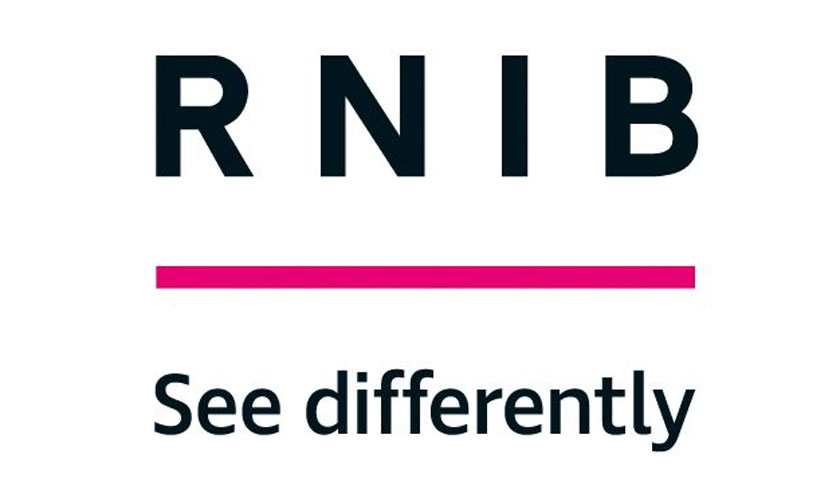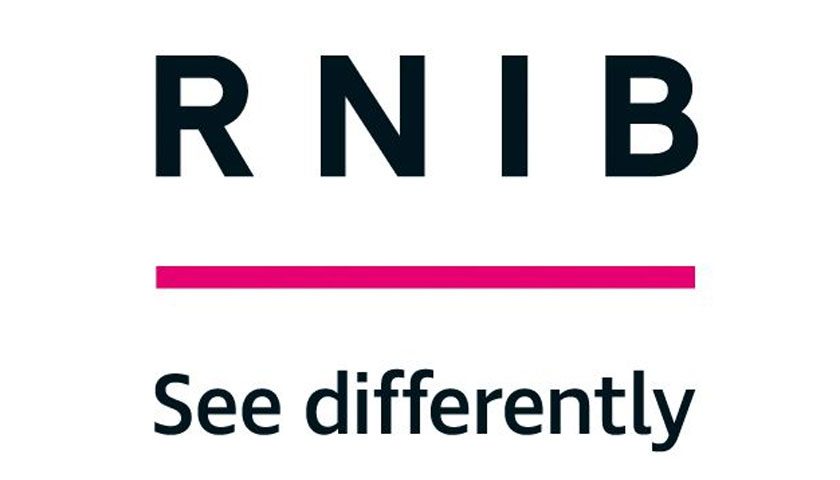Led by RNIB NI (The Royal National Institute of Blind People), in partnership with Guide Dogs NI, the Counselling Insight Project is a two-year venture that received £80,207 of funding from the Department of Health Mental Health Fund, administered by Community Foundation NI.

“I felt isolated at school”
Those are the words of Leah Tylor as two NI sight loss charities come together to offer first of its kind training for school counselling staff.
Let’s ‘Make it Better Together’ for children and young people with visual impairment, was the message for Counselling professionals at an event held at the MAC Theatre Belfast on Friday 27 January.
The event, attended by over 50 delegates, including Mark McGuicken, Director of Disability and Older People Services at the Department of Health and Robbie Butler, Chair of the All Party Group on Visual Impairment, took place to formally launch the Counselling Insight Project – a two year project offering specialist accredited training for those who provide counselling within an education setting.
The project team will deliver high quality accredited training to school counselling practitioners and others on how to work effectively with visually impaired and blind children and young people within schools.
Led by RNIB NI (The Royal National Institute of Blind People), in partnership with Guide Dogs NI, the Counselling Insight Project is a two-year venture that received £80,207 of funding from the Department of Health Mental Health Fund, administered by Community Foundation NI.
The ‘Make it Better Together’ launch event was an opportunity to welcome stakeholders from across the sectors of education, health and social care, and other mental health support service providers in Northern Ireland, to learn about the specialist training this new Counselling Insight Project has to offer, including enrolment and future plans.
This two-day training course will be delivered by RNIB BACP qualified counsellors, who hold experience of working with visually impaired and blind children and young people. The project team will make the most of online video conferencing to deliver training in a virtual setting that can be easily accessed by professionals working within the sector.
By providing this essential upskilling and training in this way, the project team within RNIB NI and Guide Dogs NI, hope to enhance the emotional support provided to children and young people living with a visual impairment across Northern Ireland.
Leah Tylor is from Feeny in Co. Derry/Londonderry and is aged 20. Leah has lived with sight loss all her life due to a number of eye conditions including aniridia and glaucoma. Leah is currently in her second year studying social work at Liverpool Hope University.
Leah says: “I recently lost quite a bit of the remaining vision in my left eye, which was my good eye. I would say my eyesight now is very poor. I’m trying to make the most of what sight I have left but it’s very difficult. When I’m working on my laptop, I use ZoomText magnification software but recently I have the magnification turned so far up that it’s becoming harder and harder to use.
“At school I had a support teacher. They would visit the school and advise on print sizes or formats for schoolwork and that kind of thing but there was still so much of the school experience that I didn’t feel supported in. I remember struggling with my GCSEs, particularly maths. I couldn’t see to do the exam papers, especially those with graphs and other kinds of graphics or pictures. I remember thinking that I was going to fail my maths exam, all because I couldn’t see.
“Looking back now, I believe that some sort of counselling or emotional support would have helped me but that just wasn’t an option. I felt isolated at school. It felt like everyone else was getting on with life and I was outside all that. I felt like no one wanted to be my friend because I couldn’t do the things that the rest of my age group were doing. I know it was meant to help, but I found the fact that I always seemed to have a classroom assistant nearby, prevented me from mixing properly with the others in my class. There was always this grown-up hanging round me and that affected how my class reacted to me.”
“I had so much trouble making friends. Not being able to see stopped me approaching the others in my class and introducing myself and putting myself out there. My confidence was very low. Even as we all got older. The others would be planning nights out and meeting up outside school and whilst I did make some friends, it just felt like there was always that barrier there stopping me being fully accepted.”
“I just wish that when I was at school, the teachers and other school staff simply had more awareness of disability and what that meant for those of us living with it. I don’t just mean sight loss but all disabilities. My school life could’ve been so different had someone just been there who understood. School students need encouragement and shown how they can realise their dreams or ambitions. It’s not just enough to make sure they have the right text size. It takes more than that. I was so shy at school and was too afraid to speak up and say what I thought or ask for help. I felt I already stuck out enough and didn’t want to ask a lot of questions. I’d like to say to people growing up now, just speak out to someone. Share how you feel with your family or friends or someone else you trust.”
Local singer and winner of the Voice UK 2013, Andrea Begley, said: “I am very glad to support this event, launching the Counselling Insight Project. I myself went to a mainstream school and had to negotiate some difficult emotions when growing-up as a person with sight loss. I felt that I was different to those around me and that was hard at times. I really encourage those who provide counselling services to young people in schools to avail of this free training, as it will make such a difference to the support available. Most of all, I would say to children or young people living with a visual impairment today, never be afraid to ask for help or tell someone you trust what you’re going through.”
Head of Counselling and Mental Health at RNIB, Amanda Hawkins, said: “I’m so happy that we’re now able to launch the new Counselling Insight Project in partnership with Guide Dogs Northern Ireland. I’d like to sincerely thank the Department of Health and Community Fund NI for their support with funding for this project, which is the first of its kind in Northern Ireland.
“We know that losing sight is like losing anything else important as far as our feelings go. It can involve a lot of difficult emotions. It’s so important that children and young people experiencing sight loss or visual impairment, are connected with someone they can trust to talk to, so they can start to get past those difficult feelings and move on to thrive at school.
“My hope is that by providing this two-day specialist training course to qualified counselling practitioners, the emotional support that children and young people receive whilst in education, will go further to support them. I’m determined that we work to give children and young people with visual impairment confidence to grow up to be adults who feel able to make the most of the opportunities that inevitably lie before them and go on to live the lives they want to live.”
Miriam DeGroot, SISS Operations Manager (Children & Young People) – Guide Dogs NI, said: “Children and young people with visual impairment across Northern Ireland will benefit from the new training available to qualified educational counsellors and professionals. We are delighted to collaborate with the RNIB on this initiative and hope it will further strengthen the emotional support available to a child and their family at critical times in their development.”


